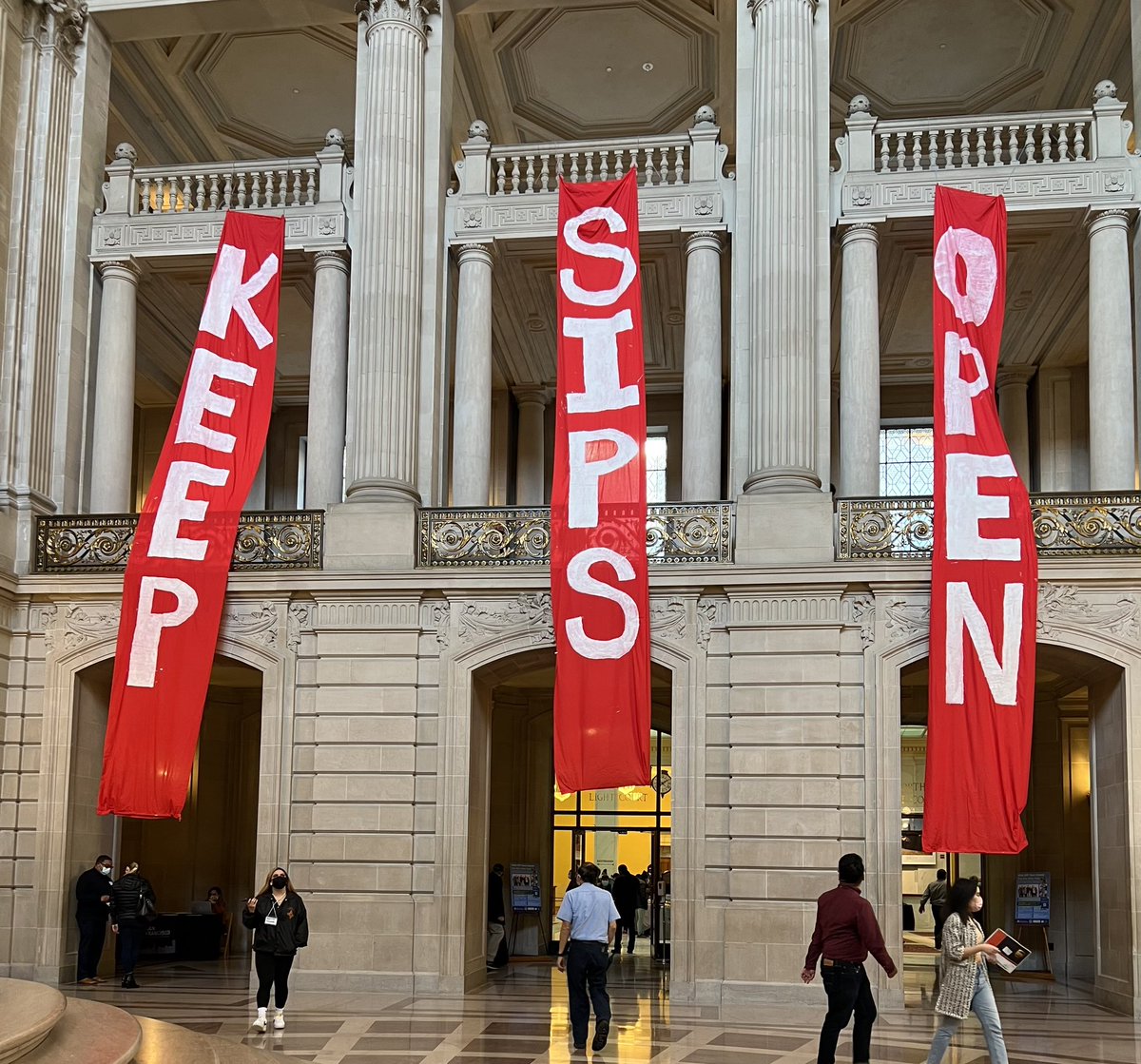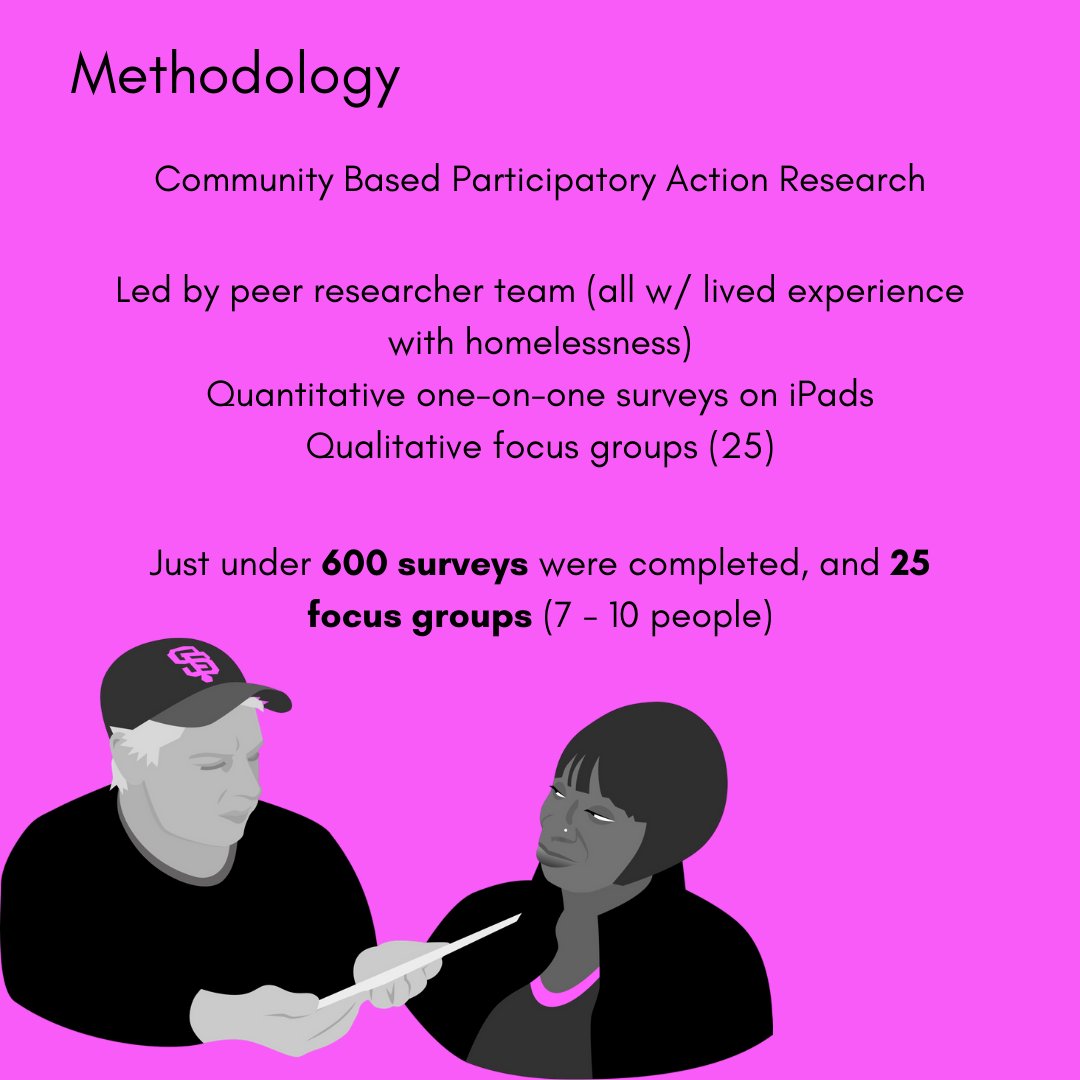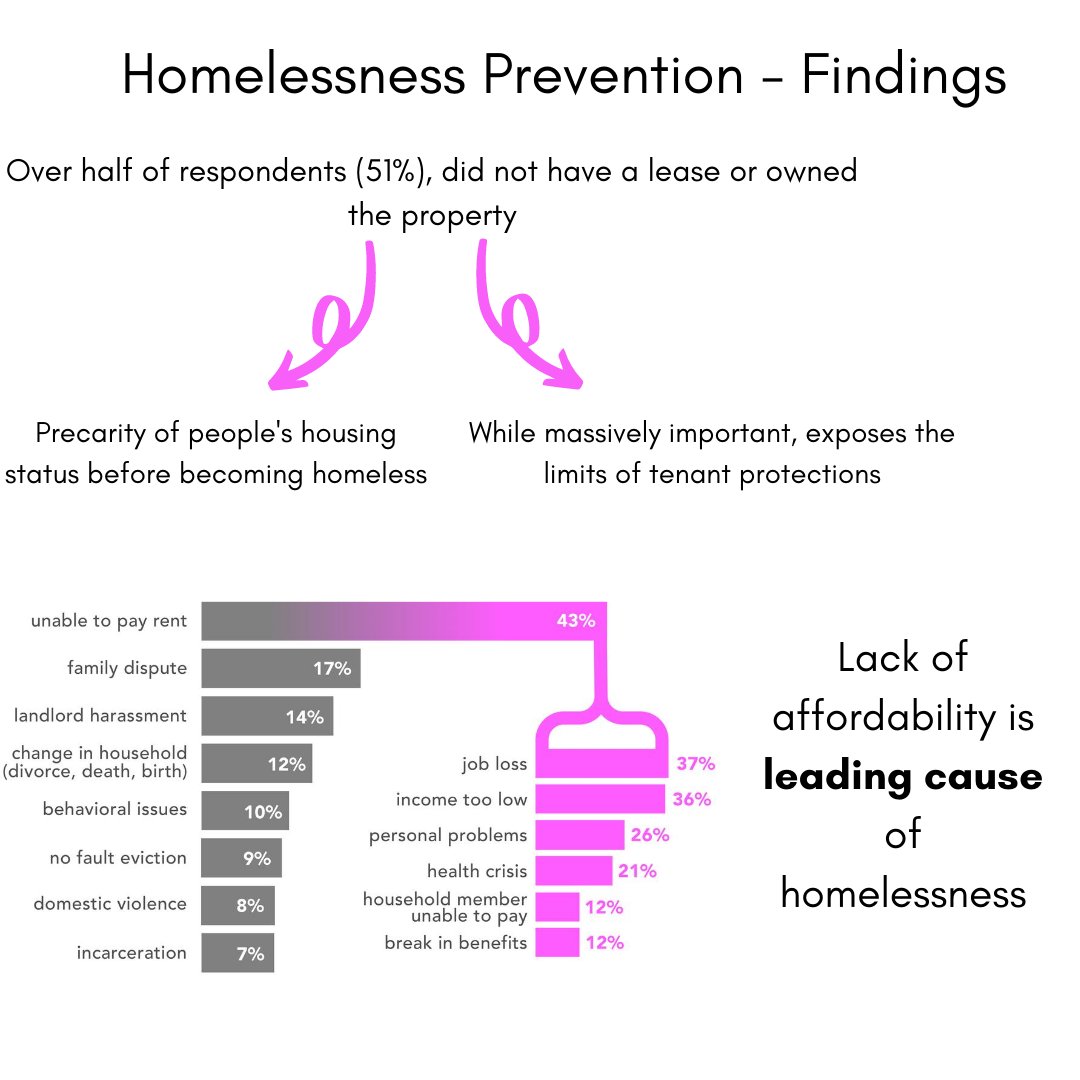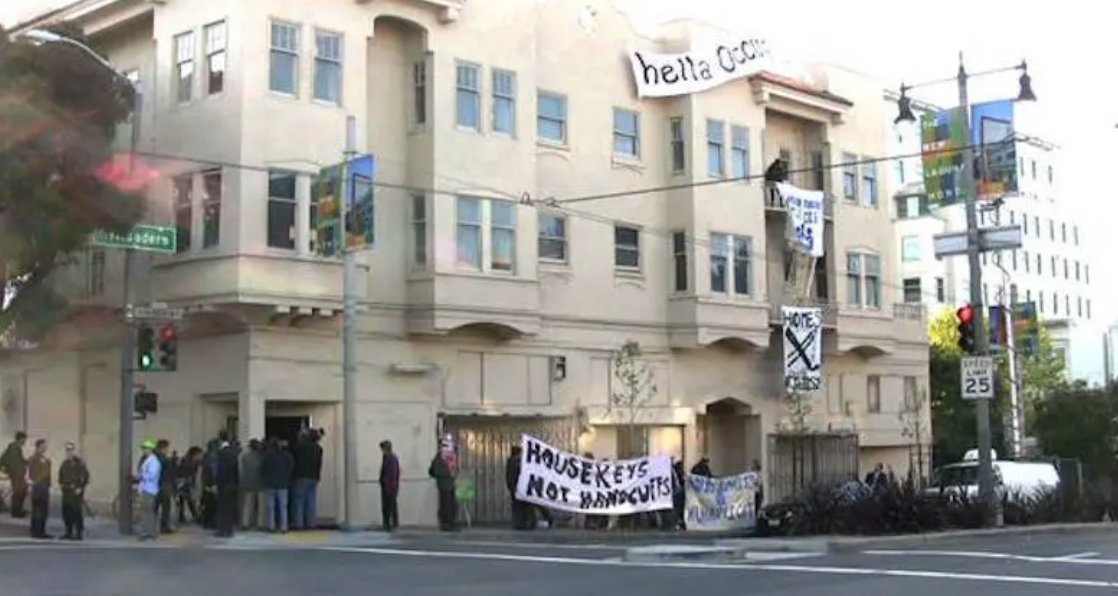
SIP hotels have been crucial to keeping people safe through the pandemic. Yesterday these banners were dropped at City Hall as a reminder to all that we must #KeepSIPsOpen @LondonBreed 

THIS IS DEATHLY DANGEROUS: Unhoused and unsheltered individuals experience medical aging, unique health concerns, and higher rates of comorbidities that far exceed their biological ages on an equivalent scale with housed individuals who are 20years their senior.
Unhoused individuals have high rates of chronic disease and face harsh conditions that contribute to long term health issues in addition to being higher at risk for exposure to COVID-19.
Stop the shuffle, keep them open, and move more folks in!
• • •
Missing some Tweet in this thread? You can try to
force a refresh






